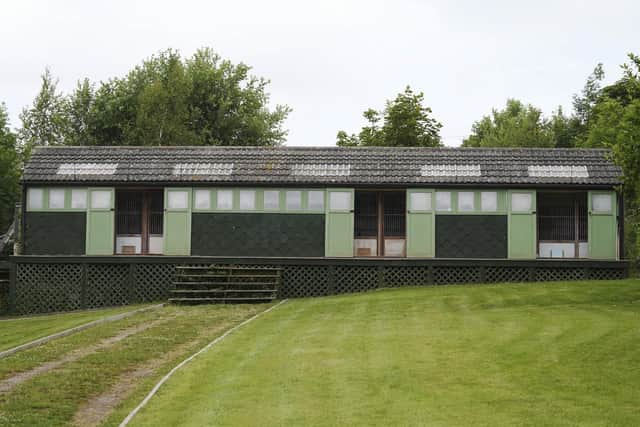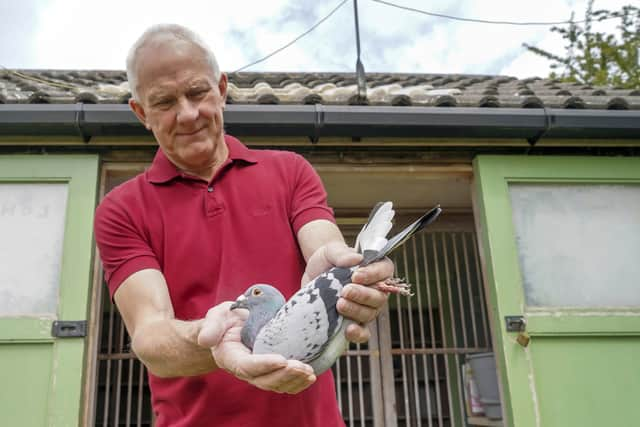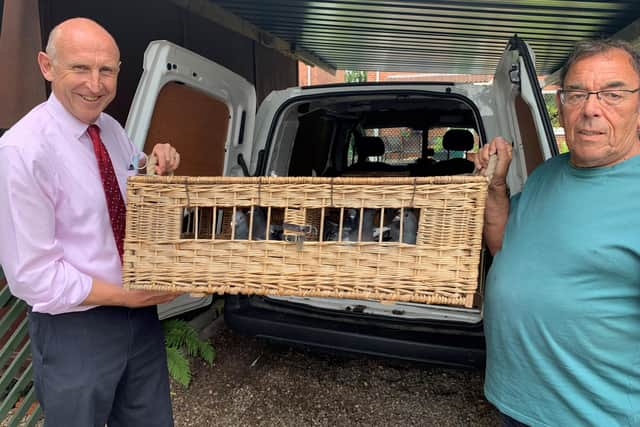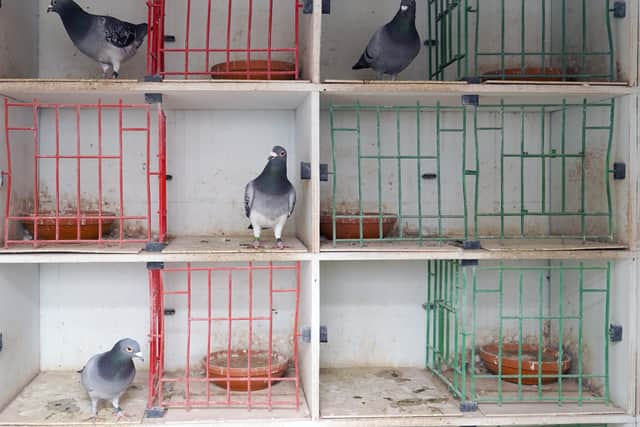Pigeon racing still flying high in Sheffield despite fears for its future
and live on Freeview channel 276
It was back in the 1960s when pigeon racing first sparked his interest. Within a few years, he had his own pigeon loft.
He bashed something out using an old wardrobe that he found on a tip. Cutting an entrance for the birds, it was just big enough for about half a dozen birds at the home near Burgoyne Road, Walkley, where he grew up.


Advertisement
Hide AdAdvertisement
Hide AdToday, with decades of professional skills from his trade, and plenty of experience of raising race winning pigeons, he has a huge loft at his home near Grenoside, with space his 100 or so birds.
Pat, aged 64, still loves his hobby – but fears it is facing problems that could see it pass into history.
The latest high profile issue to hit the headlines recently was the concern that races that have traditionally started in France may end because of Brexit. But he sees other problems raising their heads in a pastime that has been a Sheffield staple for generations.
“I’ve been racing pigeons since I was a lad,” said Pat, now one of the most successful racers in the Wadsley Bridge Flying Club, part of the Stocksbridge and District Federation in pigeon racing.


Advertisement
Hide AdAdvertisement
Hide Ad“My first race was in 1970, but I had kept birds for a few years before that. I started keeping them when I was 10 years old.
“Back in those days, kids were out all day, and we had animals. We’d be fishing or keeping ferrets or pigeons. Most kids my age had pigeons – it was quite big.
“In my early teens I got to know more about what it was about.”
His first race saw his birds flying from Kettering to Sheffield in 1970. His best finisher was ninth. In those days he had to stamp a time on a clock onto a marker tied around the bird’s leg to show when it had got home, a bit like ‘clocking in’ to work.


Advertisement
Hide AdAdvertisement
Hide AdBut times have changed, and birds now carry a bar code. When it enters its pigeon loft, the code is picked up by an electronic reader, like at a supermarket checkout, automatically notifying the race organisers.
That’s not the only science involved. The birds’ diets are worked out using the same sort of techniques that athletes use to get them ready for races.
But there is not much prize money in racing, he said.
“What I love most about it is when my pigeons win races,” he said. “That and seeing my pigeons return home. Getting them home is the thing that is first and foremost. My wife says they are like my babies.”


He breeds them as well as races them. Owners look to find breeding pairs that will be successful, in much the same way as racehorse owners.
Advertisement
Hide AdAdvertisement
Hide AdAmong his most successful pigeons is a bird he calls Sea Biscuit. Sea Biscuit won a Royal Pigeon Racing Association Merit Award last year.
This was in recognition of Sea Biscuit’s outstanding success in what the racing community calls Channel Races – races which are released in France and return to England over the English Channel.
There were three of these in his area last year. His bird won two of them.
“These are a big deal, everyone wants to win them,” he said. “If you get one first place you’re doing well.”
Advertisement
Hide AdAdvertisement
Hide AdBut next year there are concerns that the races will not happen because of Brexit.
South Yorkshire MP John Healey revealed recently that he was battling to overturn new Brexit rules that are stopping pigeon racing across the channel, as new rules mean the sport – where birds are released in Europe to fly back to the UK – cannot take place. Such races have been running for more than 100 years.
New animal health regulations due to come in on 21 April would have required pigeons to have a health certificate signed by a vet and be in the EU for 21 days before release. In May, the EU agreed to extend the transitional period for the regulations until October 2021, but member states can apply their own national rules and France continues to require an animal health certificate.
UK owners want the requirements to be removed altogether.
“Owners appreciate the need for stringent regulations for movement into the EU but these birds are low risk and are not being imported, only transported then released,” said Mr Healey.
Advertisement
Hide AdAdvertisement
Hide AdPat says there are owners in the city who are very upset about this change. But it is not the only problem racers are facing at the moment.
They are also concerned about a rise in the number of birds of prey in the wild affecting their animals.
“We have a big problem with birds of prey killing our pigeons,” he said. “The number of sparrow hawks and peregrine falcons is a big problem. People are breeding them out. A lot of these birds are making a comeback. For pigeons this is a big problem, so much so that a lot of people have packed it in. My understanding is they’re also wiping out songbirds. During the war, birds of prey were shot to protect carrier pigeons bringing messages from Europe.”
He’s also concerned about the number of young people taking up pigeons.
Advertisement
Hide AdAdvertisement
Hide AdPat has a son and a daughter as well as pigeons. They ask him how his birds are doing, but neither has taken up the hobby themselves.
“My club has 25 members,” he said. The federation has maybe 100, There are more on the other side of Sheffield too.
“Our federation sends out about 1,500 birds a week out. When I was in my 20s it was around 3,000.
“I do worry it will die out.”
Log onto https://www.rpra.org/about-rpra/getting-started/a-beginners-guide/ to find out how to start racing pigeons.
Comment Guidelines
National World encourages reader discussion on our stories. User feedback, insights and back-and-forth exchanges add a rich layer of context to reporting. Please review our Community Guidelines before commenting.
